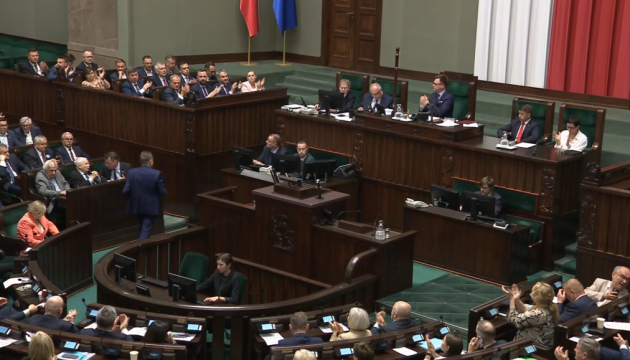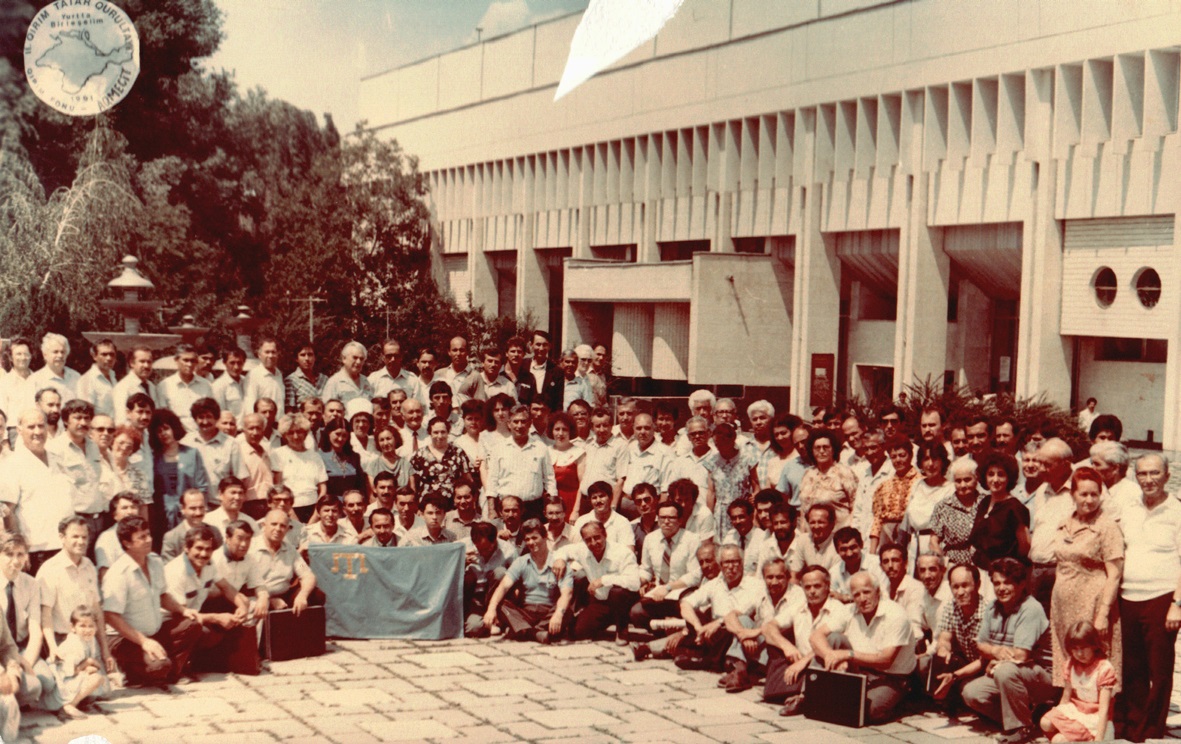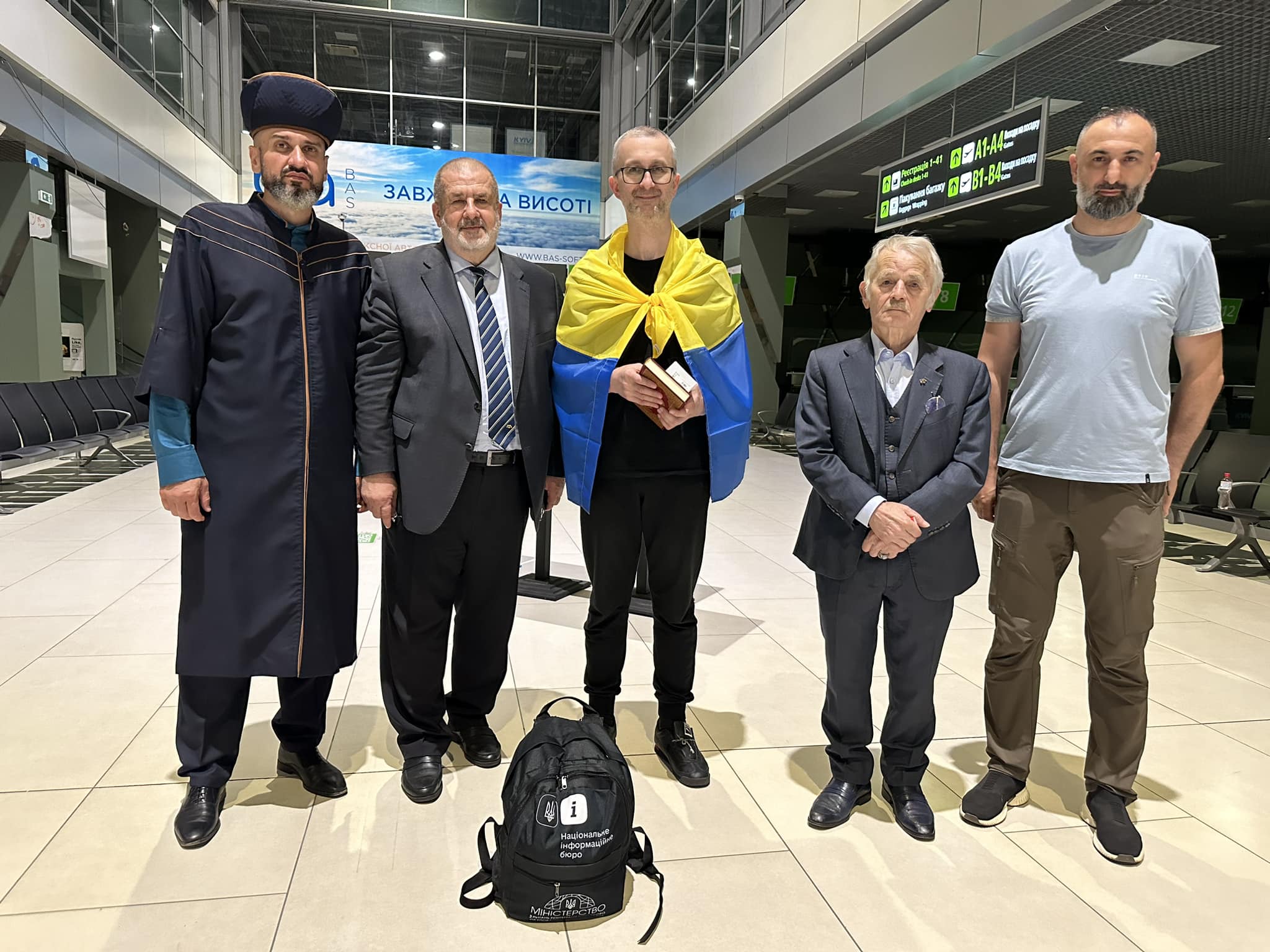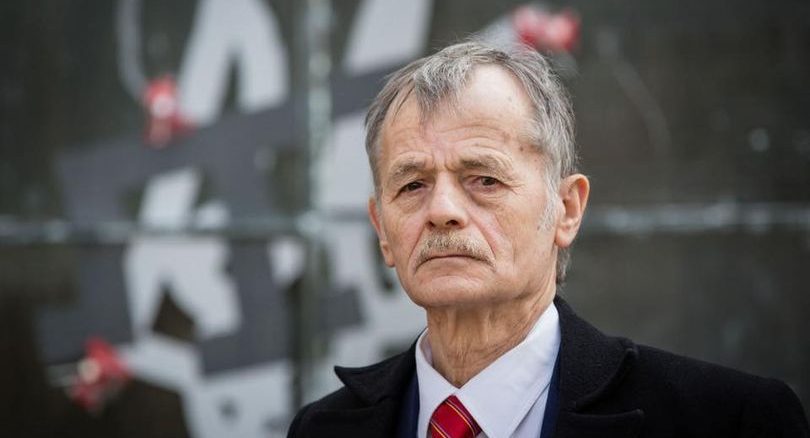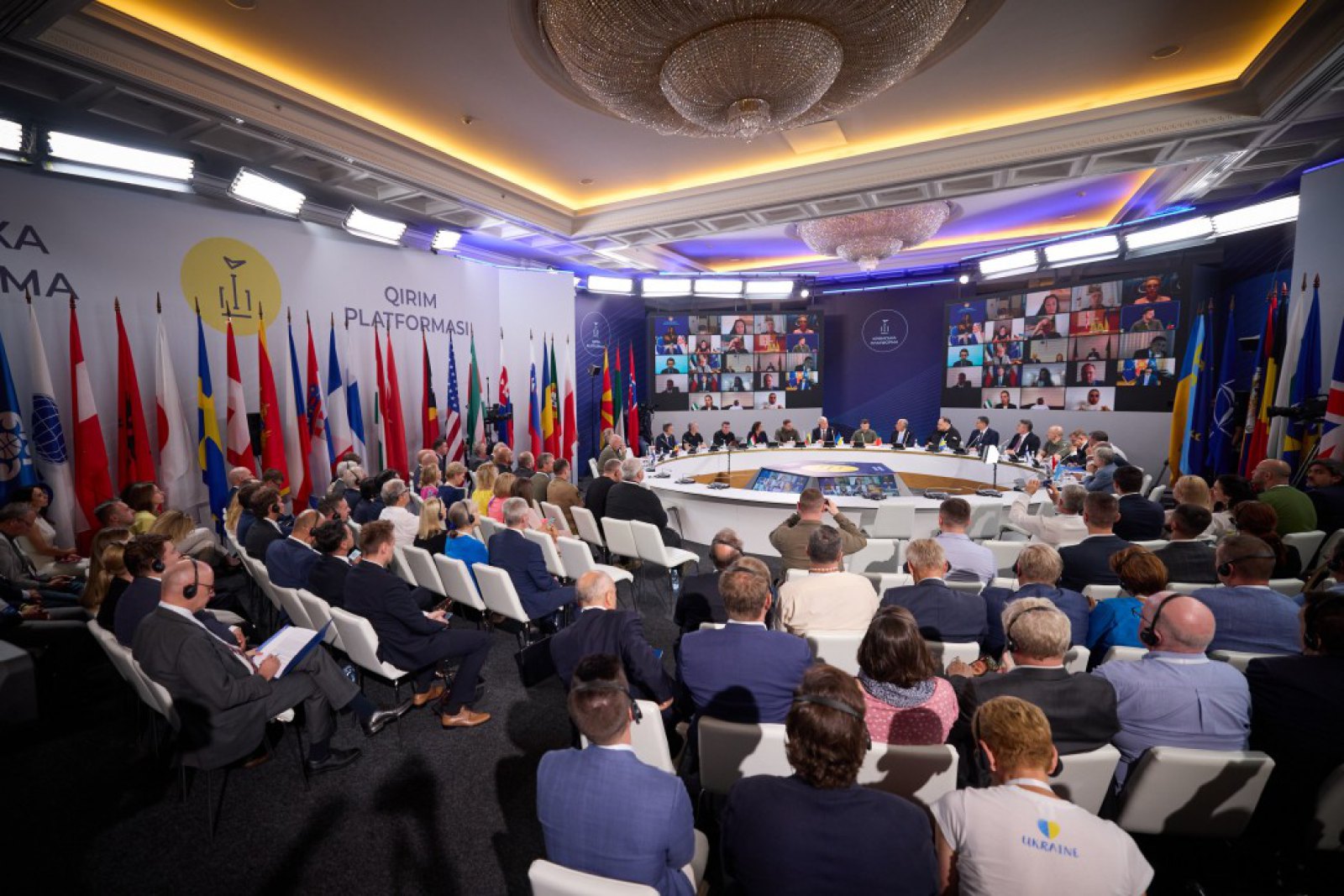M.Jemilev: There is no Alternative to Qurultay…
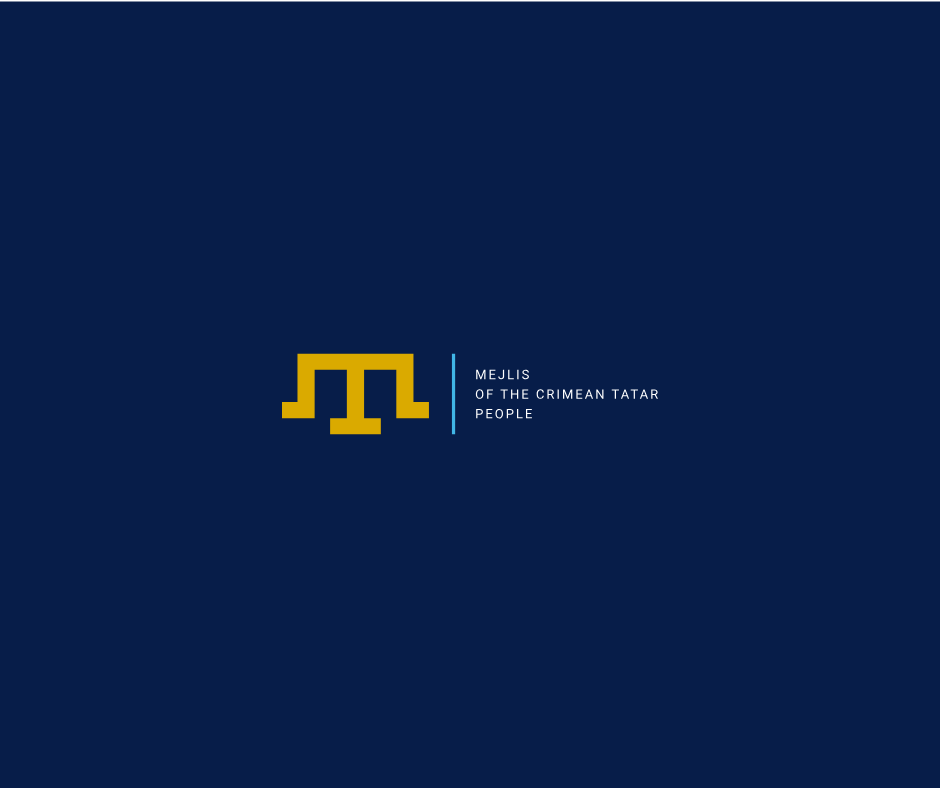
– Mustafa-bey, the Crimean Tatar movement has been developing for decades. The forms of people’s involvement in the national movement have changed. First there were the territorial initiative groups, then 20 years ago the structured system of the national representation – the system Qurultay – Mejlis was formed. Do you think is there any development after the creation of this system and in what direction?
– The national movement didn’t start from the initiative groups. After Stalin’s death and after coming of so called “vegetarian” time of the Communist regime, when already no one was executed at once for expression of one’s opinion, but was first subjected to some kind of investigation and court trial and then was sent to prison or camp, fired from work, expelled from the institute or party (in case one was a member of the party). At this period the prominent writers, veterans of war and former officials of Crimean ASSR wrote the appeals to the authorities asking them to solve Crimean Tatar issue and restore people’s rights, in other words, to return them to their homeland and revive Crimean Tatar autonomy. At the same time there were illegal leaflets of “Chirchik Group”, student groups, underground youth organizations with their subsequent arrests with charges in anti-Soviet propaganda and agitation (e.g. case of E.Seferov and Sh.Abdurakhmanov in Chirchik, case of “the Union of Crimean Tatar Youth” in 1961 in Tashkent). Then, only since 1964 the “initiative groups” were formed in Crimean Tatar settlements and delegations were sent to Moscow.
Such form of political self-organization was unique and first in the territory of the former USSR. It had both its pluses and of coarse some minuses. The initiative groups couldn’t be called political organizations and correspondingly their participants couldn’t be drawn to the criminal responsibility. In order to secure themselves from the repressions some our nationals from more conservative wing of the National movement even called them “the initiative groups, assisting the Party and Government in Lenin’s solution of Crimean Tatar national issue”. However, it was very easy to implant KGB agents to them and even create fully controlled by KGB initiative groups in the National movement. In fact, KGB agents didn’t represent any particular threat, because we almost had no secrets. However, existence of various groups “controlled” by KGB that usually opposed each other, of coarse prevented the consolidation of the whole people. Nevertheless, there were no other forms of organization in order to protect ones political rights at that time. Of coarse, one couldn’t even think of the open elections of people’s representatives, calling of Qurultay and election of the representative body of people at that time. It is become possible only during Perestroika shortly before the collapse of the Soviet regime.
According to many researchers of the national movements in the former USSR the calling of Qurultay and election of Mejlis was one of the most successful and timely decisions of Crimean Tatar National Movement. I remember in the 90th I delivered a lecture about the Human Rights advocacy movement in the USSR in George Washington University and Professor that introduced me said: “There were many national movements in the Soviet Union and their number increased significantly in Perestroika period when one couldn’t already be imprisoned for that kind of activity. Unfortunately, many national movements got split quickly to various confronting parts. However, Crimean Tatar National Movement not only splitted and weakened after the collapse of the Soviet Union, but got reinforced significantly. It happened mainly because they ran elections among their people in time and elected their own representative body, created the democratic system of national self-governance…”
As far as further development of the system of the national self-governance concerns, if some cardinal changes take place in the country and existing system does not correspond to the realias then one should think of some changes in our system. However, for the past 20 years there were not any significant events in the state, demanding alterations of our system. In fact, the frequent changes in the representative system do not testify to the progress. For example, the parliamentary system of the Great Britain was not changed for more than 200 years, but for all that it didn’t become less democrative.
– Several various groups were formed in the National movement since the establishment of Qurultay and Mejlis that opposed the decisions and activity of these bodies of the national self-governance. In particular, one could recall the Council of Aksakals, the Party of Muslims of Ukraine, Crimean Tatar Block and etc. However, if earlier the activity of such structures had fragment nature, today , first, the number of these groups increased, second, their activity acquired a systematic nature and third, they make repeating attempts to coordinate their actions. What do you think provoked these changes and what they could result in?
– There were groups and movements in the National Movement long before the calling of Qurultay in 1991. It is quite normal, because everyone couldn’t thing the same way. Everyone has one’s own life experience, intellect, knowledge, honesty, loyalty to these or that principles and etc. Splitting of opinions concerning the ways and methods of the National Movement started already in the second half of the 60-ies when the foreign Mass Media started spreading the information about the fight of Crimean Tatars for their rights and their situation in the USSR. The conservative or “pro-Communist” part of the movement considered that it causes damage to people and set the authorities against Crimean Tatars even more, putting off the solution of the problem. They even strongly opposed any contacts and cooperation with other Human Rights advocates in the USSR and considered that we should only address to “native Lenin’s Party”. Others, more radical, thought that no problems could be solved without the democratization of the whole system, including Crimean Tatar one. They also thought that the Soviet authorities will solve this issue only when they will understand that non-solution would cost them even more. That is why that part of the Crimean Tatar movement became soon the organic part and quite powerful wing of all-Union Human Rights advocacy movement. Of coarse the relations between that part of the movement with our “conservatives” were quite chilly.
However, one thing is when the groups and movements created in accordance with one’s view of the ways and methods of solving people’s problems, and another case is when they are created in order to become a leader at least of any group, or they are created and supported by third forces in order to split, and correspondingly, weaken the National Movement. In 1993 the Deputy Head of notorious 5th divisions of KGB USSR lieutenant colonel A.N. Kichikhin told in his interview to Radio Liberty about the methods of KGB’s fight against the national movements. He told that their agency fought against the national movements in the USSR not only using repressions, but also splitting them, creating analogous “movements” controlled by KGB. As an example he told about the Crimean Tatar National Movement when three different movements were created in opposition to the main one. This A.Kichikhin’s statement was sited in our Mass Media. By the way, today many functionaries of these “parallel national movements” call themselves “veterans of the National movement” and from time to time they make the laud statements against Mejlis.
However, the mentioned Council of Aksakals, the Party of Muslims of Ukraine, Crimean Tatar Block is another phenomenon. The first one was created in 1999 by the leader of the Crimean Communist Party and the former speaker of the Parliament of ARC Leonid Grach in order to have at least any hand-held Crimean Tatar structure, because he had, to put it mildly, not very warm relations with Mejlis. After L.Grach left his post these “aksakals” were relegated to oblivion as well. Anyway, some of them appear in the new structures, created in opposition to Mejlis, including newly created “Crimean Tatar Front”. The Party of Muslims of Ukraine and Crimean Tatar Block were created exclusively for the sake of elections. The first one was created by the Party of Regions, the second one was created by one Crimean entrepreneur who was elected to the Parliament. The task of both of them was to take at least a certain number of Crimean Tatar votes. It in very unlikely that these groups had anything to do with the special cervices, though, the figures were mostly the same. Now there are attempts to unite all old and newly created groups into one single “front” against Mejlis. However, there is no doubt that the result will be the same as in case of “akshakals”, because Crimean Tatars developed a strong immunity against the splitting attempts.
– “The national meeting of Crimean Tatars” has been held in Crimea few times. Do you think, are there any attempts to create the public structures, parallel to Qurultay today?
– The all-national meeting of Crimean Tatars could be called exclusively a meeting where the people are elected in accordance with any legitimate system by Crimean Tatars themselves. At this, their representation should cover the whole people or at least its majority. Today only the sessions of Qurultay of the Crimean Tatar people could be referred to as the national meeting of Crimean Tatars. Calling the meetings of people, numbering 50 – 100 persons who gather together by some figures in order to say spiteful things about Mejlis’ failure and weakness is a dishonor of the whole people. But, unfortunately, we have such practice today.
Of course, one could create few dozens of structures, opposing Qurultay and even unite them some way, but if the participants of these structures were not elected by people itself, one couldn’t say about the alternative to Qurultay. Even if one could suggest hypothetically that there will be elections of the representatives, covering at least half of the people and new representative structure would be created then Qurultay must abdicate its responsibilities in order to avoid splitting of the people and its delegates have to get involved into the activity of the new structure. However, the best way of course is if all these people who dissatisfied with Qurultay’s activity will try to deserve the trust of their nationals and will be elected its delegates and try to adopt the decisions that they consider would be the most correct, including the composition of Mejlis and its head. So, in any case there could be no alternative to Qurultay.
– Recently the idea of returning to the practice of giving the mandate of the representative of the Crimean Tatar people was proclaimed that existed in the 60-ies – 80-ies and which empowered the delegate to represent their interests. Earlier there was a proposal to form the national representative body and automatically include to its composition the deputies of all levels, elected from among Crimean Tatars. Isn’t it an attempt to change the system of national representation Qurultay – Mejlis that has been existed for 20 years?
– “Mandates” with the signatures of the residents of this or that settlement, area or street were given at those times to Crimean Tatar delegates who were sent to Moscow. They were required not for the authorities, but rather for the leaders of the delegations in Moscow to know who and where came from. There is just no reason to return to this system when there is possibility to hold the legal elections of the representatives in accordance with all the democratic standards. No one will consider seriously such possessors of “mandates” as people’s representatives. The initiators of these kinds of “ideas” are as a rule, people who have no chances to be elected in accordance with the rules, developed by Qurultay, in particular the “veterans” of the former “parallel movements” in the National movement.
One couldn’t also make all the deputies of all levels the representatives, because they were not elected as the representatives of the Crimean Tatar people, but as the deputies of this or that district or party and were not elected exclusively by Crimean Tatars. There are deputies among Crimean Tatars (one even from “Russian Block” in Dzhankoy region, one from the Communist Party in Feodosiya) who received almost no Crimean Tatar votes.
– What tasks are the most urgent in the activity of Qurultay and Mejlis today?
– Mejlis and Qurultay are deal with all the problems of our nationals, irrespective of the level of their priority. However, the most urgent problems are of coarse the adoption of the Law of Ukraine on the restoration of the rights of the Crimean Tatar people and other peoples, deported on the ethnic grounds, and restoration of at least minimum justice in the land issue, because full justice is already almost impossible as the main lands were already taken and the return of our nationals who forced to live in the places of exile, ensuring the adequate representation of the repatriates in governing structures of the autonomy, restoration of the system of education in native language, and solution of numerous social problems.
Roughly 53 % of Crimean Tatars have housing problems – they have no their own housing or their houses do not met the minimum living standards. There is difficult situation in new Crimean Tatar settlements – there are no roads, heating, some even have no water and electric supply. There is a catastrophic situation with school in native language. The new generation does not know its native language. All this requires financing, but there is almost no financing of the social programs from the state budget last years. There are plans to draw other finances for these purposes. The Turkish government agreed to provide financing for the construction of few schools, construction and purchasing of a certain number of houses, assistance in construction of the central mosque, industrial area and Crimean Tatar cultural center. If all this will be implemented, then the expenditures will exceed the state financing of the program of the resettlement of the repatriates for the whole past 20 years. However, here we also face with if not open than a blunt bureaucratic resistance of our officials who do not approve the program of assistance of the Turkish International Cooperation and Development Agency on different pretexts.
We set big hopes in this respect for the outcomes of the International Forum on the Problems of Crimea and Crimean Tatars, scheduled for the end of this year.
Interviewed by Nariman Jelyal
Crimean Tatar newspaper “Avdet”
